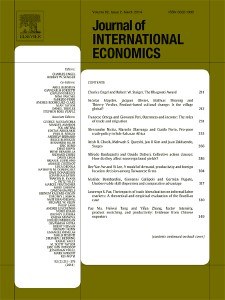
Beetsma, R. and Jensen, H. (2003). Contingent deficit sanctions and moral hazard with a stability pact Journal of International Economics, 61(1):187--208.
-
Affiliated author
-
Publication year2003
-
JournalJournal of International Economics
We show how a stability pact based on deficit sanctions eliminates the exacerbation of debt accumulation that may arise from monetary unification. Moreover, with sanctions contingent on the observed state of the economy, the pact avoids aggravating the situation of a country in recession. Moral hazard problems arise if the state also depends on unobservable, politically costly fiscal effort. This could explain why sanctions under the actual Stability and Growth Pact are only automatically waived in extreme recessions and why the procedure linking observed deficits and sanctions involves a long and detailed assessment of a country's situation.